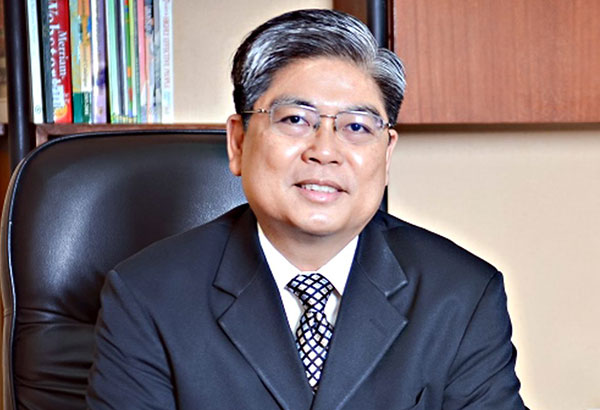Investing in quality education

Alba
To harness demographic dividends
MANILA, Philippines — Now that the Philippines has entered its own demographic sweet spot, the economy is in a greater position to achieve significant growth through greater productivity, high savings rate and increased consumption.
“In the next 80 years or so, the number of working age Filipinos will be large relative to the number of young and elderly Filipinos,” according to Far Eastern University (FEU) president Michael Alba.
This is the demographic sweet spot where the dependency ratio of Filipinos — or the number of young and elderly Filipinos against the number of working age population — is at its lowest.
At present, the country’s dependency ratio is 0.6 percent. The number is projected to reach its trough at 0.5 in 2055 before rising again, but only to 0.6 by 2100. Alba said that number was significantly lower than the country’s dependency ratio in the 1950’s which was above one percent.
According to Alba, the lower dependency ratio provides vast opportunity for economic growth, as more Filipinos would be able to save money, leading to financial stability.
“This has never happened before. One of the problems we have with economic development is that historically, we have never had high national savings rate. So this is our opportunity. If we can just give working age Filipinos gainful employment, unlike previous generation, they will be able to save as never before,” Alba said.
However, to be able to provide gainful employment to Filipinos, there is a need to improve the quality of education in the country.
“You have to give quality education to young Filipinos so that they will both thrive in their careers and their lives,” Alba said.
While most Filipino parents put emphasis on the quality of college education for their children, Alba also stressed the importance of instilling the quality aspect of education at an early stage which the basic-education department of FEU-system schools is proud of.
The ultimate goal of the FEU basic education unit is to produce grade 12 graduates who will thrive in the best higher education institutions.
This means that a basic-education graduate must have mastery of the detailed DepEd curriculum and possesses other attributes including values and behaviors that the school would like its young students to internalize, according to Alba.
“The way we have chosen to go about this is to adopt a constructivist philosophy of education and in particular, the understanding-by-design (UBD) framework – the argument being that, ultimately, the essence of education is about the learner being able to draw out and construct meaning about herself and the world from what she learns,” Alba said.
Alba said the basic education unit of FEU, which includes Roosevelt Colleges, are starting to implement a number of initiatives that would become part of their distinctions in the years to come. Among these are the use of a curriculum map to monitor the student’s journey and the creation of a technology-enhanced learning environment.
Curriculum map
One way to ensure that a student would thrive in college is to map out the competencies, values, and behavioral traits that a student needs to develop in his/her learning journey, Alba said.
Alba explained there are four types of curriculum maps: the essential map, which features the DepEd curriculum plus the values of FEU; the consensus map, which is basically the essential map plus aspects that stakeholders in a particular school consider important in their particular context; the projected map, which is a schedule of connected sets of topics and the diary map, which is teacher’s reflections on how plans worked with the class as a whole and with particular students.
“At the end of each school year, using the reflections in their diary maps, teachers hold a workshop to do a postmortem on the curriculum map and to improve on it for the next school year,”Alba said.
Among the benefits of using curriculum maps, according to Alba is that it sets out an explicit road map of a student’s learning journey and instills a culture of continuous improvement in the school.
Technology-based
Alba acknowledged that the students of today, being digital natives, have a different way of learning. “You need to use technology or you’ll not be able to connect with them.”
FEU is implementing a technology program which consists of the following components: an aggressive upgrading of the information-technology infrastructure – which aims, among other things, to bump up internet speeds in each campus to about 200 mbps and to use cloud services extensively – adoption of both enterprise software and education-technology applications and training of teachers to become more education-technology savvy.
Alba said a number of FEU campuses are pilot-testing McGrawHill’s adaptive learning technology, while others are adopting tablets such as iPads and are in the process of doing away with textbooks.
“I want to move out of textbooks. I want my teachers to become experts in the subjects that they teach,” Alba said.
In addition, teachers are also being trained to use various apps to enhance the learning experience in classrooms.
While FEU is doing its part to raise the quality of education in the country, there is still a lot of work to be done to improve the education system.
Without quality education, the country may not reap the benefits of the demographic sweetspot, according to Alba.
“I don’t understand why our policymakers have not really made a big thing out of it. But there is some urgency involved because I am not sure these opportunity will present itself ever again,” he said, adding that “if we don’t leverage on what we have now, maybe we will not get much in terms of the demographic dividends.”
- Latest

























